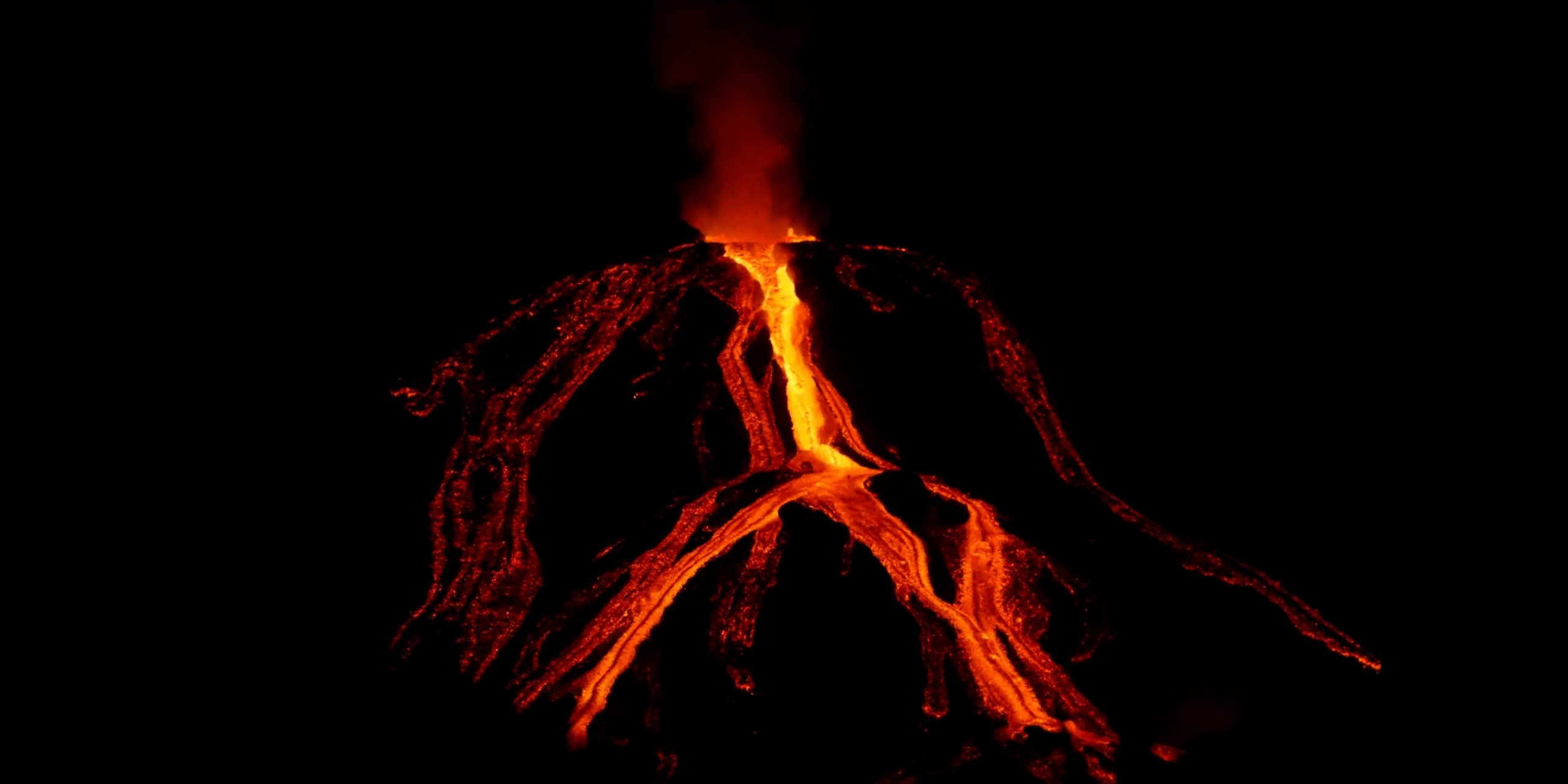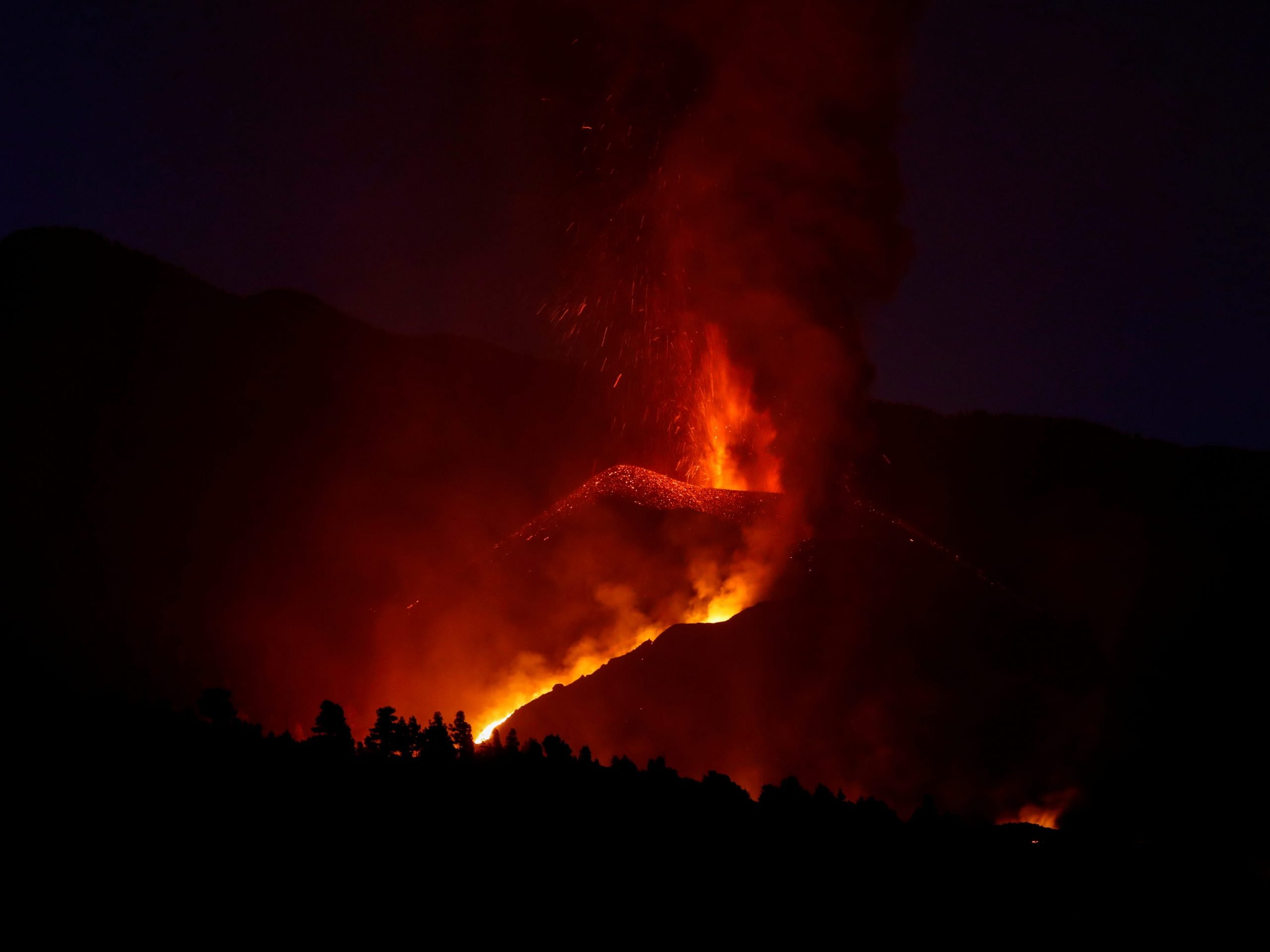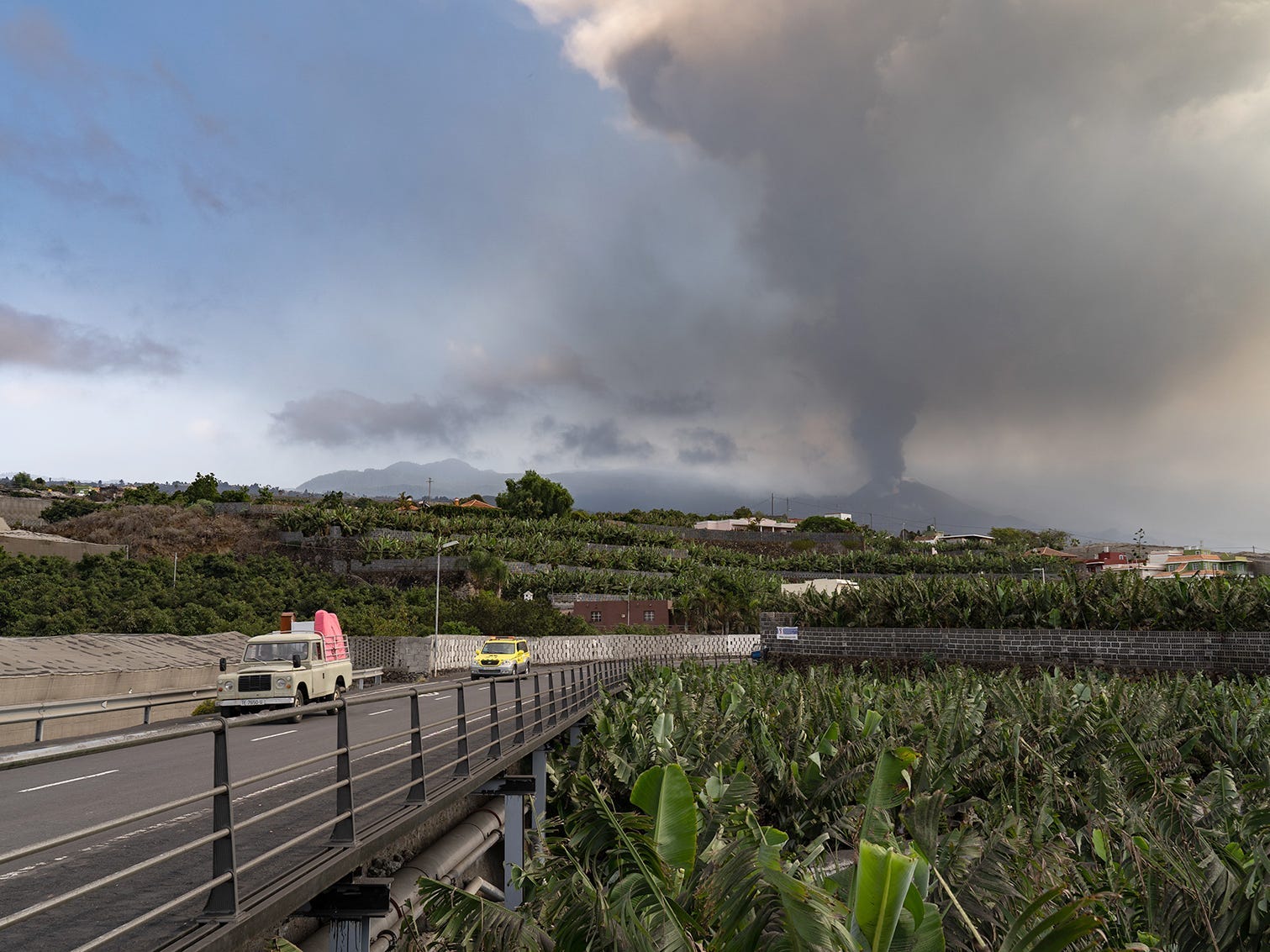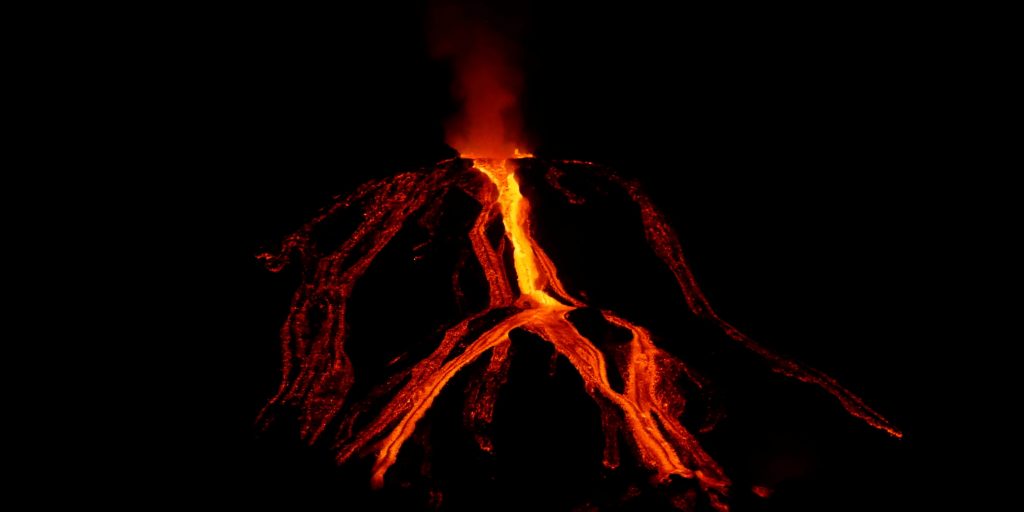
REUTERS/Susana Vera
- The Cumbre Vieja volcano in La Palma, Canary Islands, has been erupting since September 19th.
- A new "tsunami of lava" has poured from the volcano, caused by earthquakes.
- So far, over 7000 people have fled their homes.
After a " tsunami of lava " poured from the Cumbre Vieja volcano, three hundred people were forced to evacuate their homes.
A 4.5 magnitude earthquake on October 16 caused a new river of lava to gush from the volcano.
The spectacular eruption, which has been going on since September 19, has forced 7000 people from their homes.

REUTERS/Susana Vera
A spokesperson from the Canary Islands Volcanology Institute called the new eruption a "lava tsunami," which they caught on camera.
-INVOLCAN (@involcan) October 14, 2021
The video shows magma - which sits at temperatures around 1075 Celcius - with high viscosity rolling into La Palma, where over 7.36 square kilometers have been submerged by the lava, according to the EU Copernicus Emergency Management Service.
The 4.5 magnitude quake was the strongest to hit the island out of 100 that occurred in 24 hours, according to Reuters.
There have been no casualties as a result of the eruption.

Europa Press via Getty Images
There is a concern, however, about the amount of sulfur dioxide emitted from the eruption.
Clouds of toxic smoke - which can cause breathing difficulties - have reached the Caribbean and neighboring European countries.
Scientists cannot predict when the eruption will end, volcanologist Robin George Andrews writes in The Times.
Dit artikel is oorspronkelijk verschenen op z24.nl
